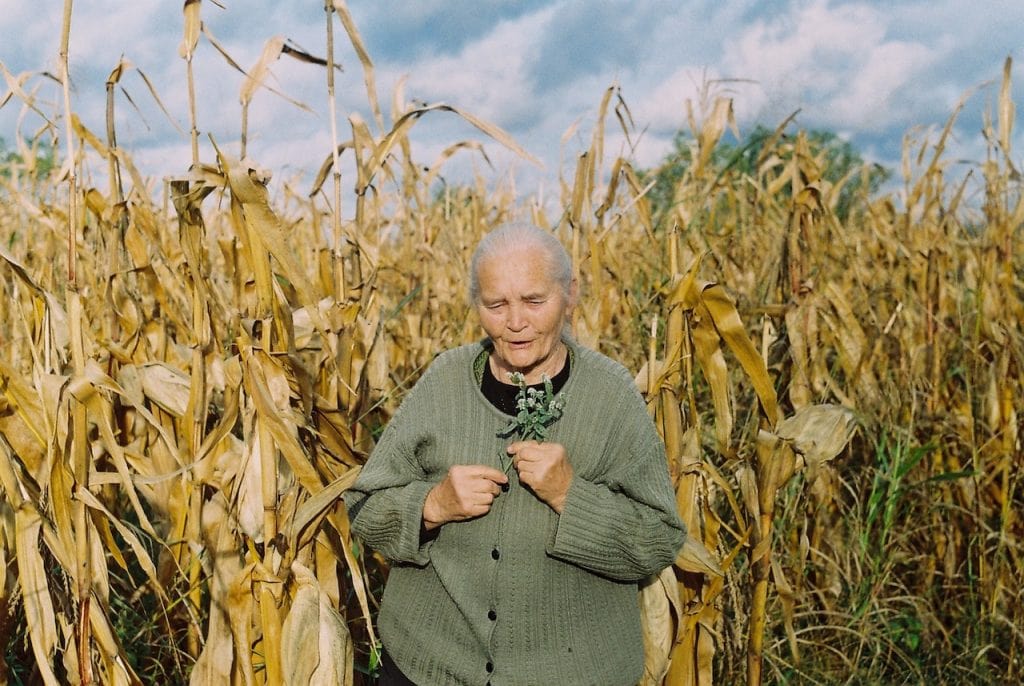Celebrate the Strength of Our Grandmothers with Lineage by Andrea Ramsey
Lineage by Andrea Ramsey is a thoughtful and moving piece that just feels good to sing. Honoring the strength of our grandmothers, the text by Margaret Walker opens up discussions of family, ancestry and strength. Ramsey evokes a bluesy, earthy, “heart-and-gut” feel throughout the composition, which allows treble ensembles to embrace a less traditional choral approach to tone and style. Below, I discuss the following aspects of Andrea Ramsey’s Lineage:
- Get to Know the Composer: Andrea Ramsey
- An Introduction to the Work of Poet Margaret Walker
- The Story and Interpretation of the Poetry
- Discussing Lineage In A Choral Setting
Are you teaching Lineage to your ensemble or want your group to get to know the piece in addition to their repertoire? Don’t forget to take a look at my Lineage Teacher Resources!

My Grandmothers Are Strong
Our final concert of the year is a “Family” themed concert. My ensembles and I are examining different familial relationships (the good and not-so-good) and the ways in which artists have portrayed these relationships in choral music. Andrea Ramsey’s Lineage is an homage to the strength (physical and emotional) of our grandmothers, fitting beautifully into our theme.
Read on to learn about composer Andrea Ramsey, poet Margaret Walker, the poem Lineage, and potential discussions for ensembles who are working on this piece.
Featured Composer: Andrea Ramsey
If you’ve been singing in choir for a while, it is likely you have come across an Andrea Ramsey piece or two. With over one hundred choral works to her name, Dr. Andrea Ramsey has heartily made her stamp on the choral world for choirs of all kinds. Her experiences as a choral educator shine in her compositional work as the vocal parts are consistently written so well for developing voices.
We especially love to program Andrea Ramsey’s Work at Arkansas State because she grew up and began her career right down the road from us. On her website, she says that in her life, she has experienced “the power of music to provide a sense of community, better understanding of our humanity, and rich opportunities for self-discovery.” This world-view comes through in so much of her music.
Here are a few Andrea Ramsey works that Highlight her compositional Range:
- Stomp On The Fire for mixed ensemble uses the power of the voice and body percussion to express the journey of mourning, struggling, and strength in diversity.
- Travelin’ Home is an arrangement of two Sacred Harp Tunes accessibly arranged as an introduction to the singing style for developing mixed, treble, or bass ensembles.
- Spark for beginning treble ensembles celebrates the inciting moments before the creation of something new. “First the breath then the song. First the spark then the flame.”
- Ramsey’s Suffrage Cantata is a large-scale work for advanced treble ensembles, highlighting the conflicts and triumphs of the road to suffrage.

Featured Poet: Margaret Walker
American poet Margaret Walker (1915-1998) is known for her work that depicts life in the south, pulling from her childhood experiences in Alabama and Louisiana. After completing her undergraduate degree at Northwestern University, Walker joined the Federal Writer’s Project in Chicago. Working with poets such as Richard Wright and Gwendolyn Brooks, Walker found herself at the center of the Chicago Black Renaissance, a creative movement spanning the 1930s and 1940s in Chicago’s South Side.
As literature professor at Jackson State University, Walker founded and eventually was the director of the Institute for the Study of History, Life, and Culture of Black People. This institute is now known as the Margaret Walker Alexander National Research Center.
Lineage, the Poem
The poem Lineage (full text here) comes from Walker’s debut collection , For My People, published in 1942.
This collection earned her the Yale Series of Younger Poets Prize – the first Black woman to receive this prize. Critics call the work “stylistically diverse” and call her voice “fearlessly original and radical.” You can read the title poem here.
Lineage is a 2 stanza, 12-line poem that does not contain a rhyme scheme. Walker uses repetition of the line “my grandmothers were strong” to form a refrain of sorts. Notably, Walker shifts from the past tense to the present tense, back to the past tense while discussing her grandmothers.

Discussing Lineage by Andrea Ramsey
I love a good book club discussion. Especially if it gives me the chance to dig into a book and look at it from a variety of perspectives. I carry this perspective into my interactions with choral music as well.
Imagine if we had book club discussions about every piece of choral music we performed or listened to! What perspectives might we glean from our choral colleagues as we discuss the piece? Here are examples of some questions we might ask ourselves as we consider Lineage by Andrea Ramsey:
- Andrea Ramsey set Margaret Walker’s Poem in a bluesy, earthy, organic manner. How does this setting amplify the text of the piece? Would you have set it any differently?
- Consider your relationship with your maternal figures. How does your relationship connect to the words of this piece?
- In what ways were your maternal figures strong? What aspects of their strength do you hope to emulate?
- If someone doesn’t have a great relationship with the maternal figures in their lives, how might they feel performing or consuming this piece?
- What sense memories do you have of your grandmothers? Does Walker’s poetry or Ramsey’s musical setting evoke any of these sense memories?
- What words or sayings do you associate with your grandmothers? “They have many clean words to say.”
- Why does Walker shift from the past tense to the present tense back to the past tense in this short poem? How does this effect the way you interpret the poem?
- What does Walker mean when she closes the poem with the phrase “Why am I not as they?” Is this a defeated or aspirational ending?
- How might considering the connections that you have to the text affect the way that you perform or consider this piece?
Complementary Pieces
Want to listen to other pieces like Lineage? Or planning a concert and need some programming ideas? Here are a few complementary pieces!
Here are some Songs about Women by Women:
- What Happens When A Woman by Alexandra Osavsky
- Say Her Name by Alysia Lee
- Quilt Songs: Women Weaving the Fabric of Life: A larger work with pieces by Alice Parker, Libby Larsen, Gabriela Lena Frank, Ysaye Barnwell, and Carol Barnett
Other repertoire I’ve programmed with Lineage this “Family” themed concert cycle:
- Méditations de la Vierge Marie by Marie-Claire Saindon for SSA
- Anybody Have A Map from Dear Evan Hansen arranged by Mark Brymer for SSA
- Last Kind Words by Paul John Rudoi with Text by Rabindranath Tagore for TTBB
- Read the full “Family” Program Roundup Here

I’d Love to Hear from You!
Have you sung or conducted Lineage by Andrea Ramsey with your choir? How did you interpret Walker’s poem? To what sort of discussions did your study of the piece lead? How was the piece received by choristers and audiences? Let me know in the comments below!
Lineage Teacher Resources!
FREE Lineage Reading Comprehension Worksheet
Reading Comprehension Worksheets pull five key points from the blog post above. Additionally, they ask singers to consider musical decisions they can make with the info from this post. Fill in the form below and get a link to a folder including the Lineage worksheet and all 2023 Spring pieces.
Lineage Teaching Guide
Check out the Inspired Choir Shop for the Lineage Teaching Guide, which includes the following:
- Learning objectives specific to Lineage
- Key Vocabulary and Definitions
- Discussion Prompts
- Three Learning Activities
- Suggested Teaching Sequence
- Additional Teaching Resources

















